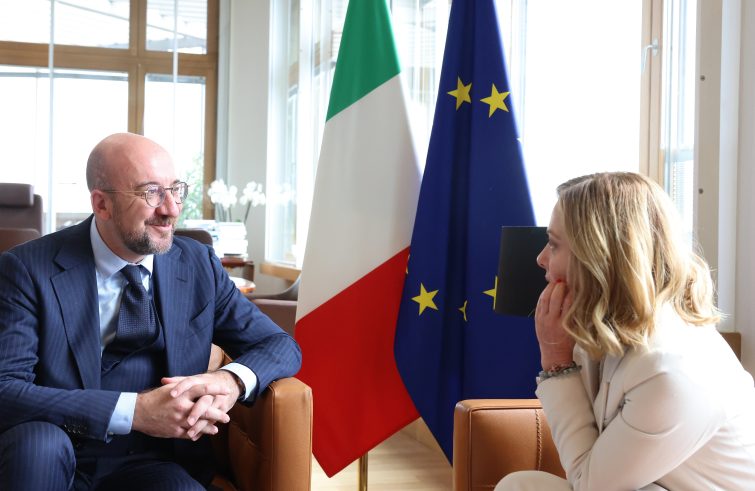
Busy agenda in Brussels and Strasbourg. After the European Parliament elections, now it’s time for intense negotiations for the so-called “top jobs”, the most important posts in the Union’s main institutions. The informal dinner of EU leaders on 17 June was a much-anticipated and anything but informal event. The 27 heads of state and government discussed the results of the 6-9 June elections, reviewed the proposals with a view to the European Council of 27 and 28 June, at which an agreement is expected on the nomination of the next President of the Commission (currently Ursula von der Leyen, Germany, EPP) the President of the European Council (Charles Michel, Belgium, Liberal) and the High Representative for Common Foreign and Security Policy (Josep Borrell, Spain, Socialists & Democrats)
Not “officially” included in these assessments is the position of President of the European Parliament, to be voted on by MEPs at the first plenary session on 16-19 July.
And yet, it was the subject of discussion among EU leaders over dinner, and outgoing Roberta Metsola, Maltese, EPP, is likely to be reconfirmed for a second term. As for the other positions, the final decision is expected at the end of June, although in Brussels it is rumoured that a decision will be postponed until early July, after the results of the French election – which could either strengthen or weaken President Emmanuel Macron – since the President of France is traditionally a key player in EU decision-making. Ursula von der Leyen continues to seek a second term as Commission chief. Her political conduct, especially in recent months, has seemingly been erratic, and she has antagonised a large part of her own College of Commissioners. However, strengthened by the EPP’s electoral victory, and in the absence of a suitable alternative, she may well be appointed by the European Council, albeit with little enthusiasm. In that case, problems could arise later on, given the need to secure a favourable vote in the European Parliament in September. Von der Leyen could then make sure that she has the votes of the so-called ‘Ursula majority’, so far made up of EPP, S&D and Liberals. Moreover, if she does not forget the Green Deal, she could try to mobilise the Green votes in her favour. What seems unlikely is a swing to the right of the majority in the EU Parliament, by seeking the support of the ECR (conservatives), a political group that includes Italian MEPs belonging to Fratelli d’Italia. However, as we all know, surprises and expediencies happen all the time in the political world.
Once the candidate for Commission President has been chosen and approved by the European Parliament, the next step will be to form the College of Commissioners,
whose members will be nominated by the respective national governments; the President of the Commission will decide on the attribution of competences, followed by hearings in the European Parliament and the subsequent vote of approval – or otherwise – of the College.
Several options are being discussed for the other two posts: Antonio Costa, the former Socialist Prime Minister of Portugal, could be appointed President of the European Council; the Liberals (but no top names have emerged so far) could be given the post of High Representative.
All this must happen by November. The nomenclature of the EU is taking a long time, especially when one considers the urgent challenges that the European Union is confronted with. There is no time to waste.












